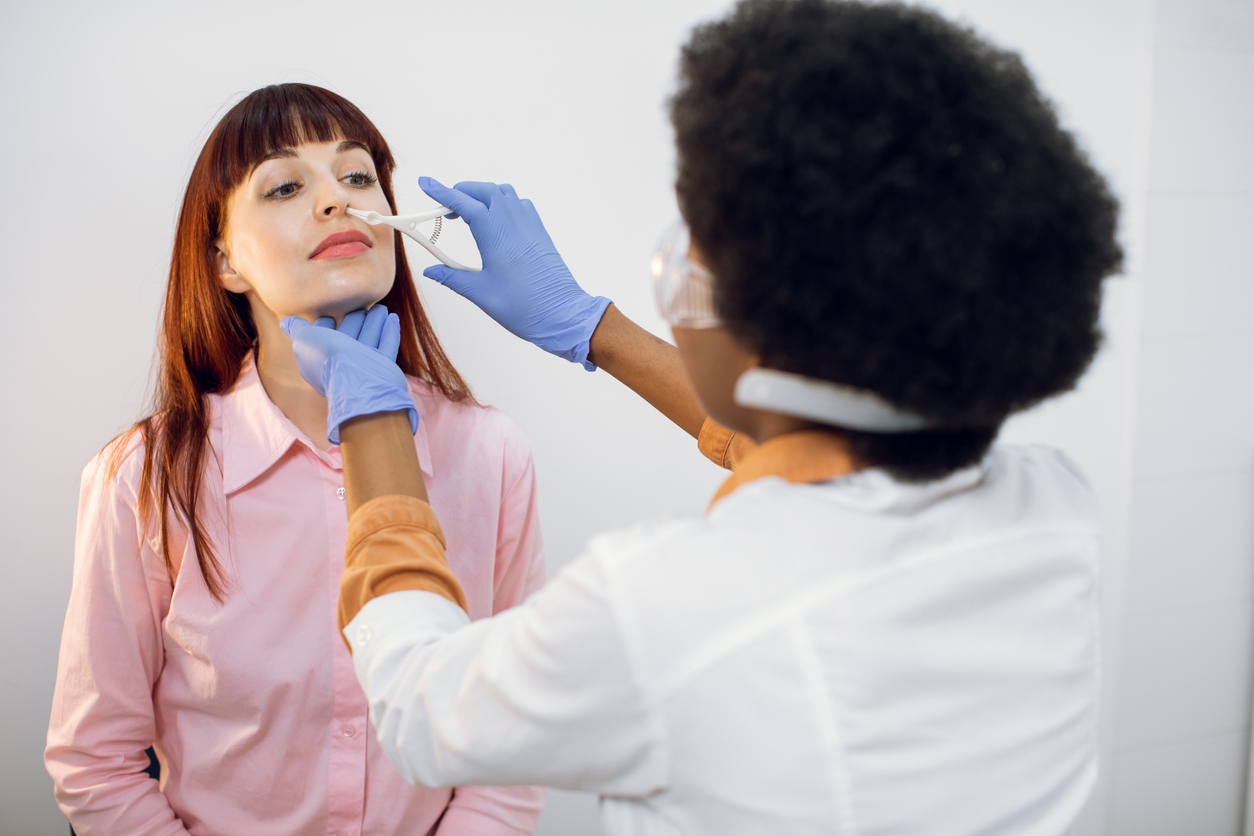
Chronic rhinorrhea is the medical term for “constant runny nose”. This is very common in kids, but there is a wide array of causes, from common to unusual.
What is “Rhinorrhea”?
“Rhinorrhea” simply means that there is fluid draining from the nose. It can be a wide range of colors and consistencies, from thin and clear to thick and colored.
What causes “Rhinorrhea”?
Many things can cause your child’s nose to be running constantly.
Common issues that can cause it include:
- Colds
- The flu
- Sinus infections
- Allergic or non-allergic rhinitis
Less common, structural issues that can cause Rhinorrhea include:
- Enlarged turbinates
- Enlarged adenoids
- Congenital septal deviations
- Choanal atresia
Then, there are the less common issues like nasal polyps, foreign bodies in the nose, or nasal cysts/tumors.

So, how do I know when to be concerned?
Usually, if a runny nose lasts less than 10 days, it is not something to be concerned about.
If the symptoms persist, however, that is where your ENT in Houston can be of help. Usually, they can differentiate between the various causes of rhinorrhea by listening to your child’s specific symptoms, along with a physical exam in the office.
Sometimes they may get additional information through a simple In-Office CT Scan, In-Office Allergy Testing or a quick look in the nose with a camera (Nasal Endoscopy). All of this testing is usually well tolerated, even by young children, and can allow us to give you immediate peace of mind, as well as treatment that can help your child, and you, feel better.
There’s no need for you and your child to continue to suffer with that constant dripping nose! Use our Online Appointment Request to see a Board Certified Ear Nose and Throat Specialist in one of our 16 locations.
What are some of the treatment options for Rhinorrhea?
The treatment for Rhinorrhea (runny nose) depends on its underlying cause. Some common treatment options include:
-
Symptomatic relief: Over-the-counter antihistamines or decongestants can help reduce nasal congestion and runny nose due to allergies or colds.
-
Nasal corticosteroid sprays: These can reduce inflammation in the nasal passages and alleviate symptoms caused by allergies or non-allergic rhinitis.
-
Saline nasal irrigation: Using a saline solution to flush out the nasal passages can help relieve congestion and thin mucus.
-
Allergen avoidance: If allergies are the cause, identifying and avoiding allergens can be beneficial. Find out more about allergy testing here.
-
Antibiotics: If rhinorrhea is caused by a bacterial infection, antibiotics may be prescribed.
-
Surgery: In cases of structural issues such as septal deviations or choanal atresia, surgical intervention may be necessary.
It's essential to consult a healthcare professional to determine the underlying cause and receive appropriate treatment for rhinorrhea. Self-diagnosis and treatment without medical advice may not be effective or safe.
If you are weighing your options, contact us today for your next step.
This article was provided by Dr. Ashley Wenaas.
Dr. Wenaas sees patients in our Fairfield and North Cypress offices.

